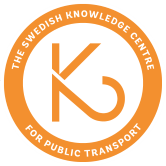Despite some incremental policy shifts accounting for transport equity concerns, the norms within which transport systems worldwide currently function are still implicitly exclusive. Older people constitute a group which is particularly susceptible to issues within the transport system. However, this susceptibility is not evenly distributed, partly due to the considerable heterogeneity in circumstances among this group. The aim of this study is to advance the methods informing the transport equity policy agenda by conducting an empirical investigation of disparities in capabilities based on Sen's Capability Approach. This is done by identifying which resources and characteristics among those aged 65–79 are associated with fewer opportunities relative to their peers. By focusing on capabilities (instead of proxies), the disparities reflecting equity concerns can be more clearly depicted. The research material comprises 1149 interviews with those living in Sweden's large metropolitan regions: Stockholm, Gothenburg and Malmö. Several analyses were developed in order to address the research questions: a multivariate multinomial logistic regression, multivariate binary logistic regressions and a basic analysis of frequencies. Clear links were identified between social resources, holding a driving license, access to public transport, income, health condition and age and capabilities. These results call for a greater focus on capabilities in travel surveys and a more fine-grained approach to equity analyses and policies by accounting for intersectionality effects. As such, more targeted and holistic policy measures can be developed.
